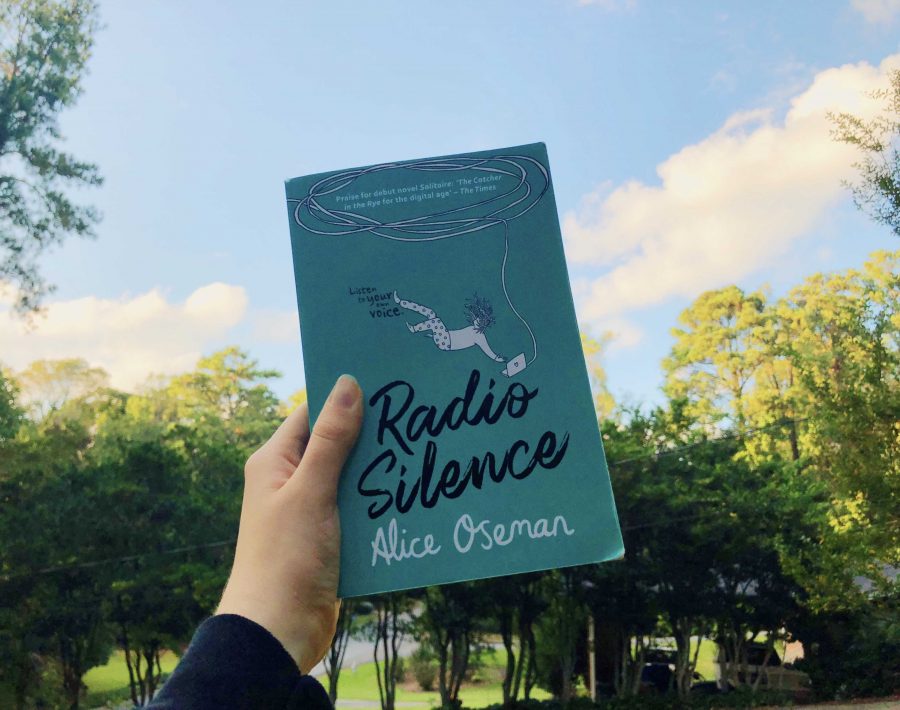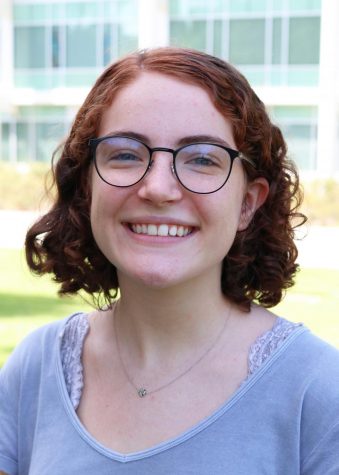Why “Radio Silence” is So Essential to Chamblee Students’ Futures
Alice Oseman’s Young Adult novel, Radio Silence.
October 16, 2018
If you are a student here at Chamblee, you know the drill all too well.
From day one, sky-high expectations from teachers and peers fill our brains as we try to cram in lengths of knowledge concurrently. Freshman initiation meetings show detailed accounts of how every grade you make will directly affect your future and success. Everyone badgers you to share what grade you received before you’ve even touched the paper. You stay up until 2:00 studying for a test at 8:15 and try to learn content all while being told the all too familiar phrase, “You should know this.”
How many of us have fallen victim to impulsively checking Infinite Campus three times a day or can still hear our teachers’ screams ringing in our ears? The culture around education seems tainted and unreal, like a dramatized horror film where failure is the silent killer. I can’t tell you how many times I’ve tried to steer clear of the groups where school self-deprecation reaps endless sympathy and answers are shared without a second thought. But when everyone around you is telling you you’ll never be good enough, it’s easy to fall into a pit of depression where your happiness is a numerical value. That’s why reading Alice Oseman’s ‘Radio Silence’ meant so much to me.
The main character, Frances Janvier, is all too relatable in her worship of productivity and lack of sleep, but even more so in her idea that college is the endgame. There is no happiness where there isn’t high marks and “smart-looking” degrees. She hardly recalls the last time she’s really, truly talked to someone where the topic wasn’t schoolwork. She dubs this husk of a human ‘School Frances’ while ‘Real Frances’ is a rare occurrence.
This lack of identity is another key theme in Oseman’s book. Without schoolwork, Frances doesn’t really know who she is or what she likes. She does things mindlessly and detached from her emotions, leading her to feel lost and shameful for never doing anything with herself. Her future is planned out but she hardly knows if she really wants it and suffers through every minute leading up to it. She has the perfect equation for life planned out, but she soon realizes that something isn’t adding up. She’s not living as herself but as some programmed machine.
I can see School Franceses every time I walk through the hallway here. Underclassmen talking about what to do the next day already thinking of what it would look like on a college application. Recently I was talking to someone close to me about how I felt like I wasn’t living fully most the time, and she told me I probably wasn’t alone in my thoughts. And I’m not. Robotic beings walk the halls, doing the same thing every day, collecting information at the seven stops of the day just to go home and stare at it for hours on end before recharging. All of this is illustrated in Oseman’s book by the girls that surround Frances, muttering compliments and giggling remarks just to seem perfect to others. When’s the last time you truly sat down with someone just for the sake of talking about your day? I hardly know how to start a conversation anymore without mentioning a hard test or an upcoming project.
Frances truly starts to find herself when she meets Aled, and finally makes a connection over something as simple as a common interest in a radio show. This leads to months and months of shared conversations and secrets and crying into each other’s shoulders when the world around them becomes too much. I realized how important a person like that is in my life, and how being so terrified of rejection and failure had stopped me from having real connections with anyone around me. I read their story and cried and laughed with them, knowing that it’s possible for me to have that.
Not only is this book modern, incredibly diverse and subtly inspirational; it tackles issues we’ve never seen in YA literature before. The world has changed since the days of JK Rowling and Judy Blume, be it for better or for worse. And Alice Oseman has taken her own experiences, struggles, and successes and transformed them into a book that has resonated deeply within in me and hopefully will within anyone else who reads it.
My true takeaway from this book was to remember that school isn’t the end all everyone around me says it is. A’s don’t equate happiness, and giving up my friends, my time, and my health to meet some unattainable goal is a waste of my existence. I have to remember my personal goals are just as important as educational “success” and that my happiness should always be my priority. And having someone there by your side to help you get through it is worth more than any college tuition.











